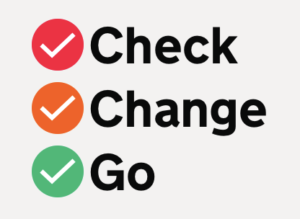UPDATE: 5 October 2020
Below we have given a brief overview of what you need to know and do to be ready for 1 January 2020.
With negotiations between Great Britain and the EU ongoing, the situation and implications for business travellers are in a state of flux. However, we’re constantly monitoring all developments. Below is the current status and we’ve put together these general points which all travellers (business and leisure) will need to consider come the New Year.

Visa
- Each country might have its own entry requirements, or ask you to have certain documents. So check the entry requirements for the country you’re visiting.
Insurance
- A business will need to check whether they need indemnity insurance for your employees.
Advisories Travelling
- Most countries have a limit on the value of goods you can bring in duty free. you think you’ll be over the duty free limit, you can usually get an ATA Carnet to avoid paying duty. This includes things like:
- samples to show at trade fairs or sales meetings
- publicity materials
- recorded film and audio
- equipment you need for work like laptops, cameras or sound equipment
- goods for educational, scientific or cultural purposes
- personal effects and sports goods
- You will also need a licence if you are moving controlled good including technology, medicine and machinery. Check if your goods are controlled and you need a licence.
- Depending on your residency status, you may have to pay tax in the country you are travelling to work in. So if you are a UK resident but travelling for work in the EU, you will need to tell HMRC you’ll be working in the EU. Also Check whether you’ll need to pay social security contributions in the country you’re working in.
For more information about Brexit and business travel, please visit or INFORMATION PAGE.
Or visit the UK Government website HERE.

PLEASE NOTE
With an election looming and Brexit delayed, a lot of uncertainty for travellers with British passports looks set to remain into 2020. We have compiled a quick guide explaining what Brexit could mean for you as a business traveller.
Last updated: 15.34 November 12th 2019
Rules for Passports: No Deal
The rules for travel to most* countries in Europe will change if the UK leaves the European Union (EU) with no deal.
New rules will apply for travel to Europe if the UK leaves the EU without a deal.
You should have at least 6 months left on an adult or child passport to travel to most countries in Europe (not including Ireland).
If you renewed your current passport before the previous one expired, extra months may have been added to its expiry date. Any extra months on your passport over 10 years may not count towards the 6 months needed.
The new rules will apply for travel to and between most countries in Europe. These are:
Andorra, Austria, Belgium, Bulgaria, Croatia, Cyprus, Czech Republic, Denmark, Estonia, Finland, France, Germany, Greece, Hungary, Iceland, Italy, Latvia, Liechtenstein, Lithuania, Luxembourg, Malta, Monaco, Netherlands, Norway, Poland, Portugal, Romania, San Marino, Slovakia, Slovenia, Spain, Sweden, Switzerland and Vatican City.
The new rules do not apply when travelling to Ireland.
Source: GOV.UK
VISAs: No Deal
The European Parliament has confirmed that UK travellers won’t need a visa to travel to the EU after Brexit for short-term business or leisure trips, even if the UK leaves without a deal. UK citizens will be able to visit the EU for up to 90 days within a 180-day period without a visa.
Source: ABTA
Driving License: No Deal
As long as you have a full UK driving licence, you don’t currently need an additional licence to drive in the EU. This will change in a no-deal scenario for certain countries. Depending on your destination, and the length of your stay, UK licence holders looking to drive in the EU after a no-deal Brexit may need to apply for an International Driving Permit.
Full details about International Driving Permits, including what permit you need for each country can be found at gov.uk
There are a number of different permits available for different countries within the EU, so you should check carefully which permit is required for each country you intend to drive within, as you may need more than one permit to comply with the law.
If required, International Driving Permits cost £5.50 and are available directly from the Post Office, you can find your nearest branch here.
The Government is also advising that you will need a GB sticker for your car when driving in the EU after Brexit.
Source: ABTA
European Health Insurance Card & Travel Insurance: No Deal
The European Health Insurance Card (EHIC) allows any EU citizen to access state medical care when they are travelling in another EU country. In the event of a no-deal Brexit, UK registered EHICs will no longer be valid.
Source: ABTA
Data Roaming: No Deal
Under EU rules, the cost of making calls, sending messages or using the internet on your phone in the EU is the same in the UK. If the UK leaves without a deal these rules will no longer apply – however, some UK companies have said they may continue to offer this benefit to their customers. Before you travel, check with your mobile phone provider about the costs of using your phone in the EU.
Source: ABTA
AGREED BREXIT DEAL
If the UK leaves with the current proposed deal, then there will be a transition period until the end of 2020, in which little will actually change. EU citizens and UK nationals will continue to be able to travel freely with a passport or identity card until the end of the transition period in 2020.
TIMEFRAME EXTENDED
PLEASE NOTE
All information was correct at the time this information was compiled.
We endeavour to update the information on a regular basis, but please be sure to check the latest news and changes as they happen.
MORE BLOGS
7 of the Most Memorable Hotels From TV and Film
n the movies and on TV, a hotel is rarely just a place to sleep — it’s a stage for drama, comedy, fear, romance and unforgettable encounters. In the BBC Radio 4 feature Seven of the most memorable hotels in film and TV, hosts Ellen E. Jones and Mark Kermode unpack why hotels make such rich settings for storytelling, acting as hermetically sealed worlds where lives collide, secrets simmer and anything can happen.
Getting the Most from Procurement Portals When Selecting Your TMC
Procurement portals are now a common way to run Travel Management Company RFPs, offering structure and consistency for procurement teams. But when portals are poorly configured, they can unintentionally limit supplier responses, create unnecessary friction, and make it harder to assess what truly differentiates one TMC from another.
Based on extensive experience responding to portal-based RFPs, this guide from Gray Dawes Travel shares nine practical ways travel managers and procurement leads can attract higher-quality responses, improve evaluation, and achieve better outcomes from the process.
Work Stays Made Easy
As winter fades and brighter days arrive, it’s the perfect time to plan ahead for a successful season of business travel. With over 800 Premier Inn hotels across the UK, you’re always close to your next meeting, conference, or event. From city centres to business hubs, enjoy convenient locations, comfy beds, blackout curtains for great sleep, and the option to upgrade to Premier Plus for extra comfort. Start your day with an unlimited breakfast, wind down with delicious on-site dining, and save with meal deals. Book early for the best value, flexibility, and stress-free stays wherever work takes you.
OUR PURPOSE
At the heart of everything we do are our people. We don’t just mean just our employees, but our clients and suppliers too.
At Gray Dawes Group we strive to create an environment which recognises and nurtures a healthy work/life balance – for our staff and clients alike.
By providing our customers with better travel management, they’re able to achieve what they need to by working flexibly, whether in the office, at home or around the globe.








